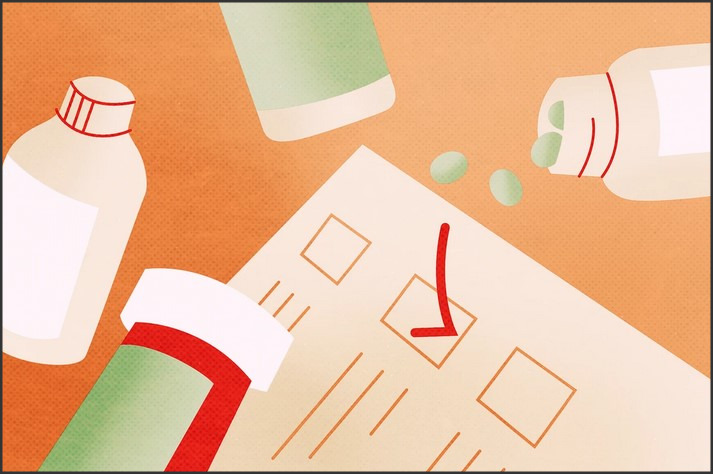
Attention Deficit Hyperactivity Disorder (ADHD) is a common neurodevelopmental disorder that affects millions of adults worldwide. It is characterized by difficulty focusing, impulsivity, and hyperactivity. While there is no cure for ADHD, medications can help manage symptoms and improve functioning. This article will discuss the various types of ADHD medications available for adults, as well as the considerations to keep in mind when selecting a medication. We will also discuss potential side effects and other important information to consider when making a decision about medication.
Exploring the Different Types of ADHD Medication for Adults: Pros and Cons
Attention Deficit Hyperactivity Disorder (ADHD) is a common mental health disorder that affects adults and children alike. It is characterized by difficulty paying attention, hyperactivity, and impulsivity. While there is no cure for ADHD, there are a variety of medications available to help manage the symptoms. In this article, we will explore the different types of ADHD medication for adults, their pros and cons, and how to decide which one is right for you.
Stimulants are the most commonly prescribed type of ADHD medication for adults. These medications work by increasing levels of dopamine and norepinephrine in the brain, which can help improve focus and reduce impulsivity. Stimulants can be taken in pill form or as a patch, and they are generally considered to be safe and effective. Pros of stimulants include improved focus and concentration, reduced impulsivity, and improved mood. Cons include potential side effects such as insomnia, decreased appetite, and irritability.
Non-stimulants are another type of ADHD medication for adults. These medications work by targeting different neurotransmitters in the brain, such as serotonin and norepinephrine. Non-stimulants are generally considered to be safer than stimulants, but they may take longer to take effect. Pros of non-stimulants include improved focus and concentration, reduced impulsivity, and improved mood. Cons include potential side effects such as nausea, fatigue, and dry mouth.
Antidepressants are another type of ADHD medication for adults. These medications work by targeting different neurotransmitters in the brain, such as serotonin and norepinephrine. Antidepressants can be taken in pill form or as a patch, and they are generally considered to be safe and effective. Pros of antidepressants include improved focus and concentration, reduced impulsivity, and improved mood. Cons include potential side effects such as insomnia, decreased appetite, and irritability.
When deciding which type of ADHD medication is right for you, it is important to consider your individual needs and lifestyle. Talk to your doctor about the pros and cons of each type of medication and make sure to discuss any potential side effects. With the right medication, you can manage your symptoms and live a more productive and fulfilling life.
Understanding the Side Effects of ADHD Medication for Adults: What to Look Out For
ADHD medications can be an effective way to manage symptoms of attention-deficit/hyperactivity disorder (ADHD) in adults. However, it is important to be aware of the potential side effects of these medications. This article will provide an overview of the common side effects of ADHD medications for adults, as well as tips for managing them.
The most common side effects of ADHD medications for adults include insomnia, decreased appetite, dry mouth, headaches, and nausea. Other potential side effects include irritability, dizziness, increased heart rate, and weight loss. It is important to note that not all adults will experience these side effects, and the severity of the side effects can vary from person to person.
If you are taking ADHD medication, it is important to be aware of the potential side effects and to talk to your doctor if you experience any of them. Your doctor may be able to adjust your dosage or switch you to a different medication if necessary. Additionally, it is important to be aware of any potential interactions between your ADHD medication and other medications or supplements you may be taking.
It is also important to be aware of the potential long-term side effects of ADHD medications. These can include changes in blood pressure, increased risk of heart attack or stroke, and changes in mood or behavior. It is important to talk to your doctor about any long-term side effects you may be experiencing.
Finally, it is important to be aware of the potential risks associated with taking ADHD medications. These can include addiction, abuse, and misuse. It is important to talk to your doctor about any potential risks and to follow their instructions carefully.
In conclusion, ADHD medications can be an effective way to manage symptoms of ADHD in adults. However, it is important to be aware of the potential side effects and to talk to your doctor if you experience any of them. Additionally, it is important to be aware of the potential long-term side effects and risks associated with taking ADHD medications. By understanding the potential side effects and risks, you can make an informed decision about whether or not to take ADHD medications.ADHD medication for adults is an important consideration for those who are struggling with the symptoms of this disorder. While there are many options available, it is important to discuss the risks and benefits of each option with a healthcare provider to determine the best course of action. Ultimately, the decision to take medication should be based on an individual’s specific needs and preferences. With the right treatment plan, adults with ADHD can lead successful and fulfilling lives.